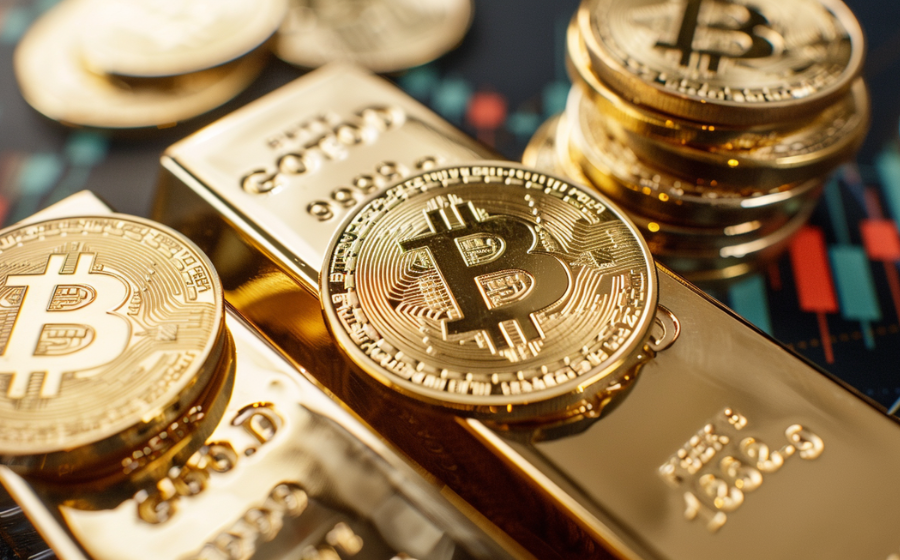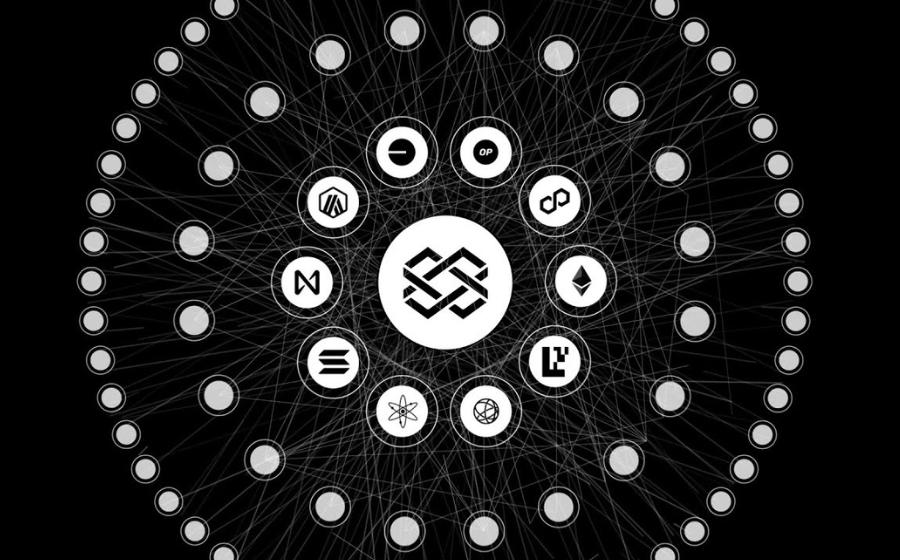
KEYTAKEAWAYS
- Bitcoin's volatility suggests it's a risk asset, but its unique features also position it as an emerging safe haven.
- Gold maintains its role as a traditional safe haven with less volatility during geopolitical conflicts compared to Bitcoin.
- Bitcoin's dual potential makes it a complex asset, suitable as both a risk-on and risk-off investment option.

CONTENT
Is Bitcoin a risk asset or a safe haven compared to gold, especially during geopolitical upheavals? Explore its dual potential in investment strategies amid global uncertainties.
Recent headline: ‘Bitcoin Plummets After Iran Launches Attack On Israel’
Amidst global uncertainties like geopolitical upheavals, this article attempts to discuss a longstanding question: Is Bitcoin fundamentally a risk asset or a safe haven?
Read more: A Comprehensive Overview of Bitcoin
BITCOIN VS GOLD: RISK ASSET VS SAFE HAVEN ASSET
First, let’s examine the definitions of risk assets and safe haven assets:
What is a Risk Asset?
Risk assets are investments characterized by unpredictable future returns and high volatility. They are pursued for their potential high rewards despite the risk of significant losses.
Stocks are a prime example of risk assets, influenced by the health and decisions of the companies that issue them. Their returns are generally unstable and vary greatly, making them a common choice for aggressive investment strategies.
Mutual funds, futures, and options also belong to this category, sharing similar risk and return profiles.
What is a Safe Haven Asset?
In contrast, safe haven assets are known for more stable returns, lower volatility, and their ability to preserve value during market downturns. Precious metals like gold are classic safe haven assets. While gold does not produce income, it has been valued as a stable store of wealth for centuries and is recognized globally.
U.S. Treasury bonds and premium real estate also qualify as safe haven assets. Treasuries offer stable yields with less price fluctuation, frequently included in conservative investment strategies, whereas prime real estate provides not only steady income but also potential for value growth and preservation.
Risk Asset: Characterized by uncertain future returns and high volatility, aimed at high returns at the expense of higher risk.
Safe Haven Asset: Features more stable returns, lower volatility, and aims primarily at risk reduction and value preservation.
Although Bitcoin’s significant volatility initially suggests it is a risk asset, the ongoing discussion about its potential as a safe haven asset suggests we should look more closely at how it behaves in the market and what it offers investors.
BITCOIN VS GOLD: WHY DO WE NEED SAFE HAVEN ASSETS?
In investing, risks come in two main types: systemic and non-systemic.
Systemic risks such as economic downturns, political instability, or geopolitical conflicts affect the entire market. These significant events broadly impact the market and cannot be easily dodged through stock selection or diversification. On the other hand, non-systemic risks are specific to individual investments—like a company falling behind technologically, operational failures, or negative publicity about its leadership. These risks can generally be mitigated with careful investment choices and diversification.
The primary role of safe haven assets is to shield investments from the losses associated with systemic risks. They preserve value and can even provide gains that counterbalance the impacts of these widespread risks.
In recent years, war has emerged as a frequent systemic risk, underscoring the importance of including safe haven assets in a balanced investment portfolio.
BITCOIN VS GOLD: ASSET PERFORMANCE IN TIMES OF GEOPOLITICAL CONFLICT
As the world becomes increasingly interconnected, the impact of geopolitical conflicts grows stronger. Whenever regional wars erupt, they often cause significant disruptions to financial markets.
What impact do geopolitical conflicts, which could potentially trigger a world war, have on the prices of Bitcoin and gold? Which asset is a better safe haven in the face of such risks?
Here we list four recent conflicts: the 2020 US-Iran conflict, the 2021 Israel-Palestine conflict, the 2022 Russia-Ukraine war, and the 2023 conflict between Israel and Hamas:
|
2020 U.S.-Iran Conflict |
2021 Israel-Palestine Conflict |
2022 Russia-Ukraine War |
2023 Israel-Hamas War |
Average |
|
|
U.S. stock index S&P 500 |
-23.06% |
5.59% |
-8.09% |
9.86% |
-3.925% |
|
Gold |
6.01% |
-2.89% |
-3.16% |
9.07% |
2.26% |
|
Bitcoin |
-8.12% |
-24.07% |
-22.78% |
57.10% |
0.53% |
(The figures in the chart are the percentage changes three months after the day of the event.)
From these comparisons alone, gold, the centuries-old safe haven asset, demonstrates the least volatility and strongest value preservation during periods of conflict.
While Bitcoin exhibits the highest volatility, experiencing significant drops and gains, it also has the potential for the highest appreciation over longer time frames.
BITCOIN VS GOLD: A RISK ASSET AND EMERGING SAFE HAVEN ASSET
If we adopt a broader definition of safe haven assets, we can consider them assets that can effectively reduce overall portfolio risk. To assess which assets can effectively reduce risk, we need to consider the existing composition of an investor’s portfolio.
For instance, if a significant portion of an investor’s assets are held in cash, the primary risk associated with cash is its potential loss of purchasing power during periods of inflation. From this perspective, stocks could be considered a safe haven asset for cash holdings. Allocating a portion of the portfolio to stocks could potentially mitigate the overall portfolio’s risk during inflationary periods.
Similarly, if an investor’s portfolio primarily comprises stocks or bonds, the primary risks are associated with global economic turmoil or geopolitical conflicts. In such scenarios, gold traditionally serves as a safe haven asset, enhancing the overall preservation of wealth during these periods of heightened risk.
Despite its inherent volatility and uncertain future returns, Bitcoin presents intriguing possibilities as both a risk asset and an emerging safe haven asset. This intriguing dual nature stems from Bitcoin’s unique attributes:
- Decentralized Issuance: Unlike centrally controlled fiat currencies, Bitcoin’s decentralized model eliminates the risk of government intervention or manipulation.
- Digital Nature: Unlike traditional safe haven assets like gold and real estate, Bitcoin’s digital existence aligns with the evolving trend toward digital and virtual value storage.
- Fixed Supply Cap: Bitcoin’s fixed supply shields it from the inflationary pressures of unlimited cash creation.
These unique characteristics allow Bitcoin to potentially hedge against specific risks associated with other assets:
- Inflation Risk: Bitcoin can counter the inflationary tendencies of continuously issued fiat currencies.
- Systemic Risk: Bitcoin may provide a hedge against potential failures within the traditional banking system.
Gold, while historically trusted as a safe haven, faces increasing storage costs and risks in an increasingly digital world. Bitcoin could address these evolving preferences and potentially replace gold as a preferred value storage option.
Cathie Wood, CEO of Ark Invest, aptly captures Bitcoin’s unique duality: “Bitcoin is unique: not only a risk-on asset but also a risk-off asset.”
Or, as Michael Saylor, CEO of MicroStrategy, a well-known Bitcoin buyer, takes a more extreme view: “Continuously buying Bitcoin is an exit strategy.”
This reflects a belief in Bitcoin as the ultimate safe haven, the asset to which all other assets should be converted.
Ultimately, the question remains: which asset will investors choose as the ultimate anchor for their wealth?
IN SUMMARY
While Bitcoin shows potential as an emerging safe haven asset, it’s crucial to remember its inherently volatile nature. For investors with lower risk tolerance, careful risk assessment is essential. The recent April 14th news of Iran attacking Israel highlights this point— Bitcoin plummeted over $7,000, triggering over 250,000 contract liquidations worth $900 million.
Bitcoin’s safe haven qualities stem from its unique characteristics, but its volatility remains a primary risk factor. Is Bitcoin a risk asset or a safe haven? Currently, the best answer may be Cathie Wood’s insight:
“Bitcoin is unique: not only a risk-on asset but also a risk-off asset.”
Looking for the latest scoop and cool insights from CoinRank? Hit up our Twitter and stay in the loop with all our fresh stories!
















